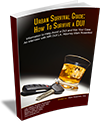Certain Tests May Provide Accurate Data Under Specific Conditions
Mark Rosenfeld: So under the ethanol peak, we have a tailing peak?
Expert: Yes.
Mark Rosenfeld: And it doesn’t come down straight, it doesn’t come down uniformly to the baseline?
Expert: Uh, if you expand the graphic and look at it, it looks like it does make contact with the baseline that it’s interpolated by the instrument. I would have to see the real data live time to see if it ever actually reached the 0-level baseline of this instrument on this day.
Mark Rosenfeld: When you do an analysis in gas chromatography, you should have a symmetrical peak, the front should look the same as the back, right?
Expert: Well, that’s ideal and it happens for some compounds, but for other compounds it may be difficult under the column that you’re using to analyze it. So it does occur, it’s not unusual, but the ideal technical response is to have a symmetrical peak, yes.
The Carbolax 100 Column Is Suitable for Analysis of Low Molecular Weight Volatile Compounds
Mark Rosenfeld: What column are you using in this particular case?
Expert: This is… it’s a carbolax 100 column, I believe.
Mark Rosenfeld: And that’s specific for alcohols?
Expert: Well, it’s suitable for the analysis of volatile, low molecular weight volatile compounds, it’s not designed specifically for alcohol, but it is one of many columns that are suitable for low molecular weight alcohol.
Mark Rosenfeld: Is your opinion that it’s not fermentation that is causing that, but you cannot say with scientific certainty what they are?
Expert: That is correct, I don’t know the identity of the two small and minor peaks of interest, I do know that they were not considered in the final uh, answer of this particular analysis.
An Expert Cannot Discount Any Possibilities That Point Towards a Certain Result
Mark Rosenfeld: Okay, alright. And you disagree that is fermentation, but it is scientifically reasonable that it could be fermentation?
Expert: Well, it is one possibility because fermentation can take place in blood specimens, but I don’t believe it’s reasonable based on my experience with this method and the uh, great number of blood specimens I’ve analyzed. This appears to be nominal and I don’t believe it is the result of fermentation. That would suggest that every blood tube has exhibited fermentation and I don’t believe that would be the case.
Mark Rosenfeld: A different expert like Mr. Okarocha could have a different opinion.
Expert: Uh, he could, I would uh, as an expert, I would want to know the identity of those peaks, uh, to be sure that they were not a fermentation product.
Mark Rosenfeld: Okay, now uh, if these other contaminants or unidentified items that are in this blood sample are there, is there another peak underneath of the ethanol peak?
Expert: Uh, that would suggest that there be a co-eluding compound that eludes along with ethanol. Uh, that is, that is pretty doubtful for this particular column, it would have to be a low molecular weight alcohol similar to ethanol, and there are none that I can think of, that would co-elude with ethanol in this process.
Mark Rosenfeld: Okay, if it were fermentation, fermentation can create ethanol?
Expert: Uh, there is a fermentation process that specifically creates ethanol, yes.
Mark Rosenfeld: Okay, so it is scientifically reasonable that a set, that a person could give a blood sample that have ethanol in their blood from drinking alcohol and then have fermentation cause additional ethanol to be produced in the blood?
Expert: Yes, that is a possibility.
Experts May Occasionally Disagree on the Outcome of a Blood Test or a Report
Mark Rosenfeld: And if that happened in this case, you would not be able to tell what the, the true ethanol level was?
Expert: That is correct. The only way to tell would be to assay the specimen for any bacteria that may be in the blood, that was not done at the time of the analysis, so that information is unknown.
Mark Rosenfeld: Thank you very much for your time, Mr. Expert, Hearing Officer may have a few questions.
Expert: You’re welcome, sure.






 Personal Attention
Personal Attention








